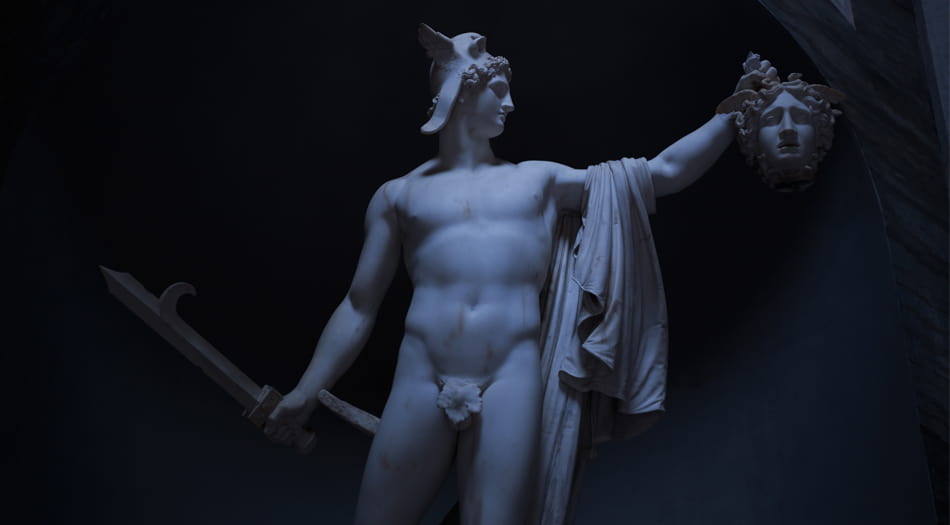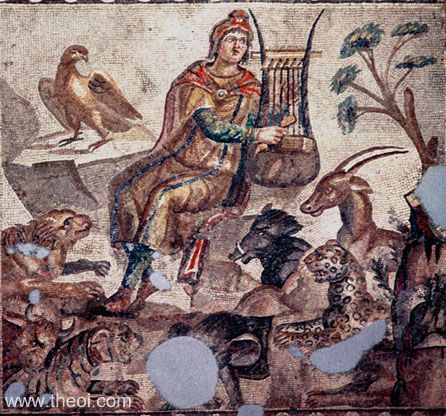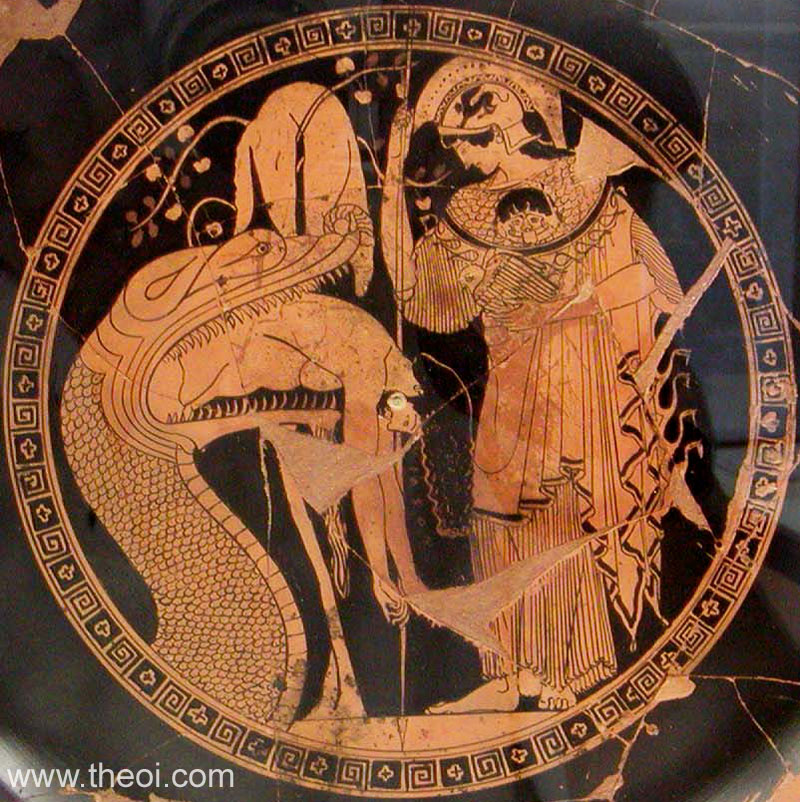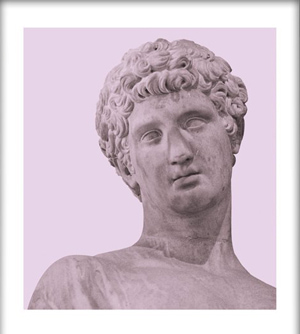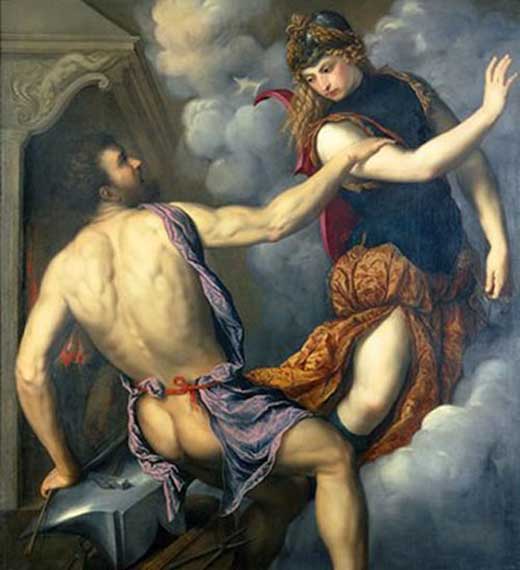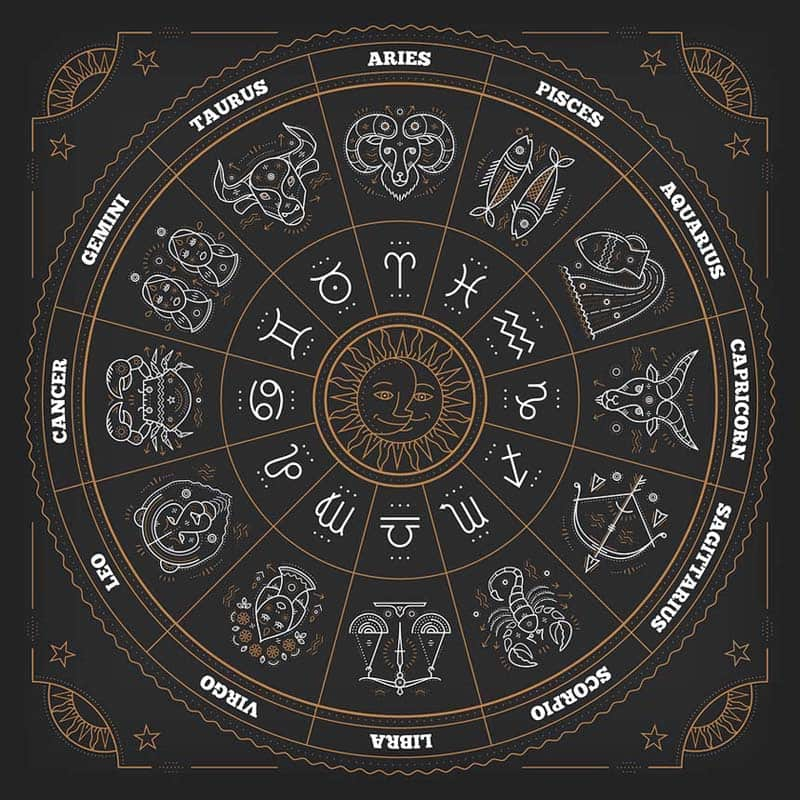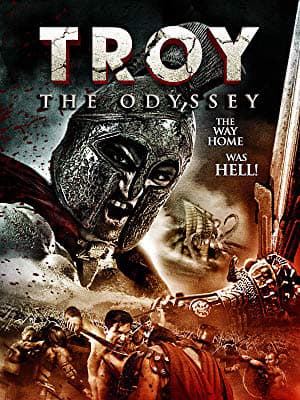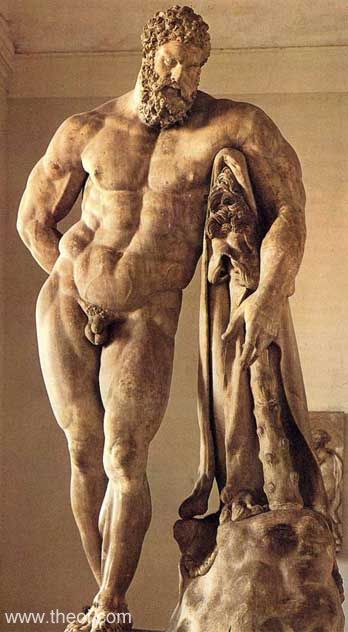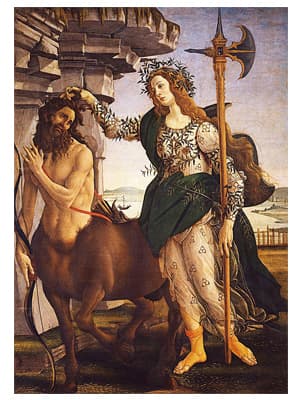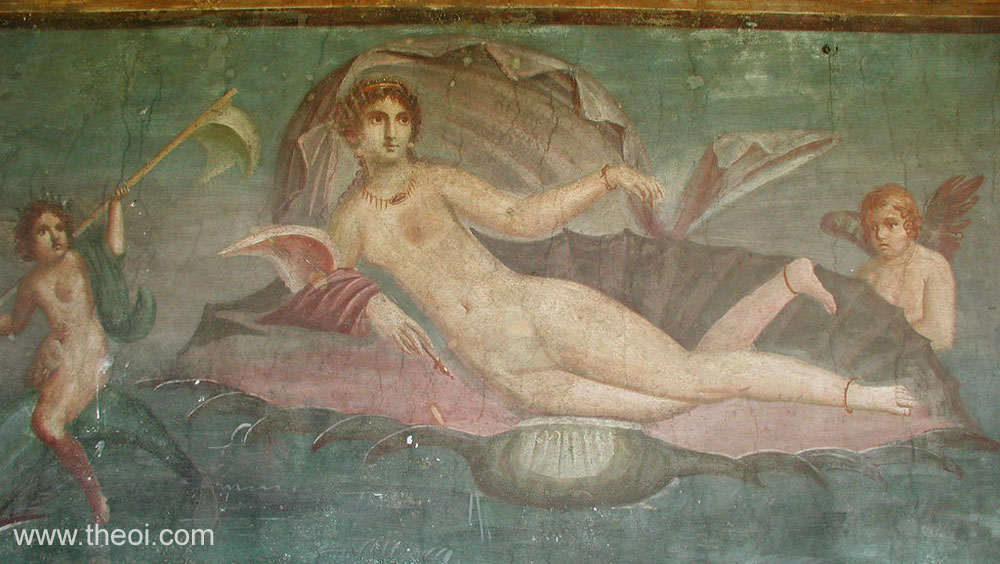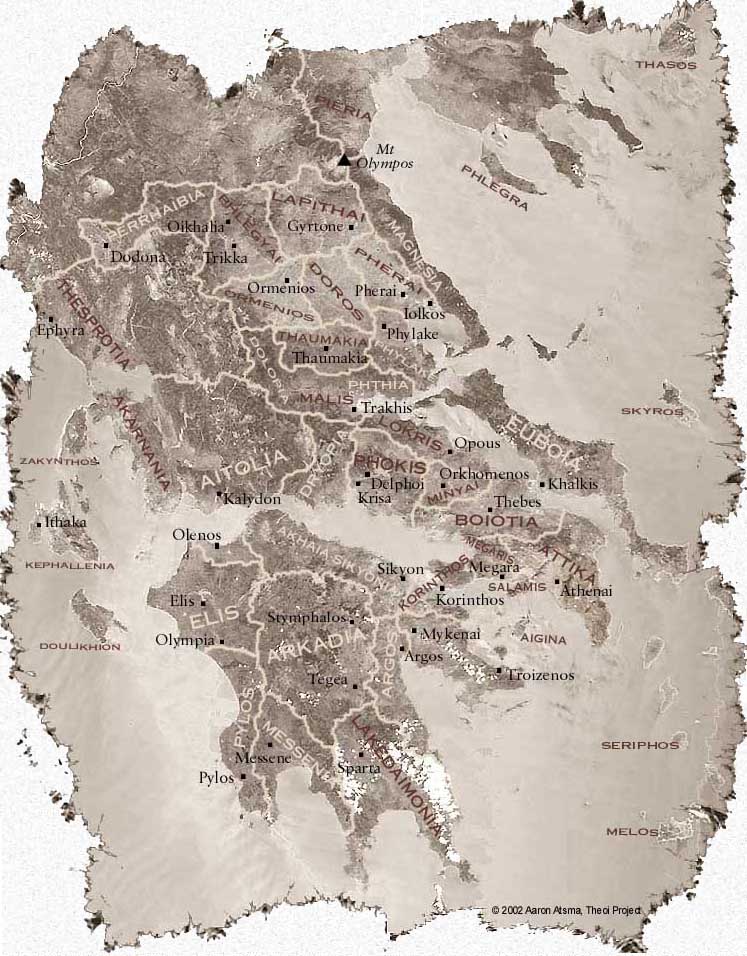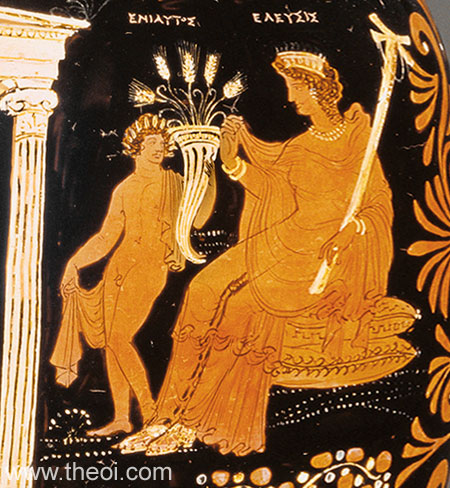Like most, if not all peoples of the world, the Greek have their own myths and legends about how the world came to be. While there are a few varying versions of the Greek Creation Myth, they all tend to revolve around a number of magical deities that just couldn’t get along for some reason. This version of the Greek Creation Myth is heavily borrowed from the works of a seventh-century BCE Greek poet named Hesiod.
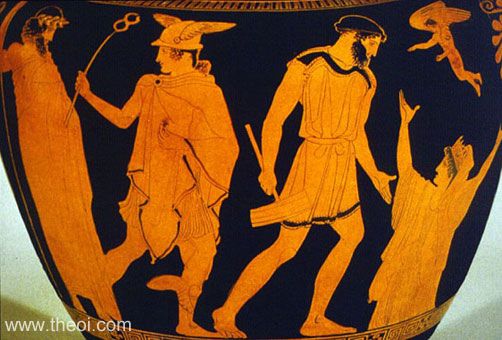
In the Beginning, There Was Nothing but Chaos
According to Greek Creation myth, in the beginning, there was nothing but Chaos – a formless emptiness or void. It is believed that Chaos was something of a careless god who lived in a dark, chaotic void with no order whatsoever. When Chaos was in-charge, there was no solid land as there is today. The was no sun, no moon, no flowing rivers, no freshwater, no seas, no mountains, and there was no pure air to breathe.
Note: There are a few conflicting stories as some versions say that in the beginning there was Nyx – a big bird with dark wings. In those myths, it is Nyx who gave birth to an egg that later on turned into Chaos. Let’s stick with the Hesiod version of things.
According to Hesiod, Chaos created Nyx out of nothing but the darkness that was all around. Together, Chaos and Nyx created Erebus, to whom the Underworld belonged. Erebus then took Nyx, his mother, as his wife and together they got two offspring: Aether and Hemera.
Note:In Greek Creation Mythology, the gods indiscriminately mate with one another.
The Birth of Gaia (Mother Earth)
Aether and Hemera who happened to be born of Erebus and Nyx mated with one another, and from their union, Gaia (Earth) came to be. Gaia had three siblings:
- Tartarus (Hell)
- Pontus (Sea)
- Eros (Love)
These four where the first official primeval deities that were born out of Chaos and it’s at this point that many versions of the Greek Creation Myth begin. Legend has it that, without male assistance, Gaia (Mother Earth) gave birth to Uranus (the Sky). Uranus then took Gaia and fertilized her, thus bringing forth the birth of the Titans. There were six males and six female Titans:
- Coeus
- Crius
- Hyperion (A Sun god)
- Lapetus
- Oceanus
- Cronos
- Mnemosyne (memory)
- Phoebe (A Moon goddess)
- Rhea
- Tethys (A Sea goddess)
- Themis
- Theia
The Battle of the Titans
When Gaia mated with Uranus to bring forth the twelve Titans, they also got a few other offspring:
- Three Cyclopes: These were gigantic beings who are described as one-eyed monsters. These three represented lighting, thunder and lightning bolt. Named Brontes, Arges, and Steropes, these three were the first smiths used by the gods.
- Three Hecatoncheires: The term “Hecatooncheires” means “hundred handed.” These were also gigantic beings with fifty heads and a hundred arms each. The three were named Briareus (Aegaeon), Cottus and Gyges. They were very powerful beings, and they absolutely hated their father, Uranus.
You see, legend has it that Uranus wasn’t a very good father. He considered his children with Gaia monsters, and as a result, he ended up hiding them deep inside Gaia herself.
Cronos and the First Rebellion
As you can imagine, like any mother, Gaia did not like the treatment of her children by Uranus, and she grew increasingly displeased and rebellious. However, as Uranus was a powerful god, Gaia needed a bit of help to get rid of him.
She began her plot by creating a hard flint stone within herself. She turned this flint stone into a very sharp sickle with a curved blade. She then went to her children, all of whom were currently residing within her and making her increasingly uncomfortable for help to overthrow their father and bring an end to his tyranny. Unfortunately, all of her children were afraid of the god Uranus – all except the last born son, Cronos (Cronus/Kronos).
Together, they hatched a plan to stop Uranus. Gaia hid her son Cronos in ambush. That very evening, when Uranus came to Gaia’s bed, Cronos leaped out and castrated his own father with the sickle his given to him by his mother. Cronos threw the severed genitals into the sea where they created Aphrodite (the goddess of love). It is said that the blood which dripped from Uranus’s severed genitals fell on the Earth and with each drop, a new creation was born:
- Erinyes/Furies: Terrible snaky-haired women who would punish certain crimes.
- Giants
- Nymphs
- Demi-goddesses.
And so, Uranus was overthrown, and Cronos became the king of the gods.
Cronos Marries His Sister Rhea
As the new king, Cronos took his sister Rhea and together they had divine sons and daughters:
- Hestia
- Hades
- Demeter
- Hera
- Poseidon
- Zeus
Cronos, very much in keeping with the phrase “like father, like son,” was not proud of his kids with Rhea. Furthermore, he feared that one of them would do unto him as he had done unto his father Uranus and overthrow him. So, as soon as any one of them was born, he would snatch it from Rhea and swallow it whole. As you can imagine, this didn’t please Rhea at all. As Gaia before her, she plotted to have Cronos stopped and to put an end to this mistreatment of her children.
When she was due to give birth to Zeus, she hid from Cronos and gave birth in secret. She then wrapped a rock in baby clothes and presented it to Cronos who immediately snatched it and swallowed it whole.
Zeus was hidden in the island of Crete where he grew up into a powerful young god guarded by warriors named Curetes. These Curetes would clash their weapons every time Zeus cried like a child to prevent Cronos from hearing those cries.
The Battle for Olympus
When Zeus was all grown and strong, he challenged his father and forced him to vomit his siblings. Zeus also released the Cyclopes and the Hecatoncheires whom Cronos had imprisoned. In gratitude, the Cyclops, being expert metal workers, gave Zeus his lightning and thunderbolt. To Poseidon, they gave a powerful trident and to Hades, a helmet of invisibility. Together, the brothers and uncles banded together as Olympians to overthrow the Titans in a great battle.
As the new king of the gods, Zeus took his sister, Hera as a wife but also carried on with numerous nymphs and other beings as concubines who bore him many sons and daughters.
